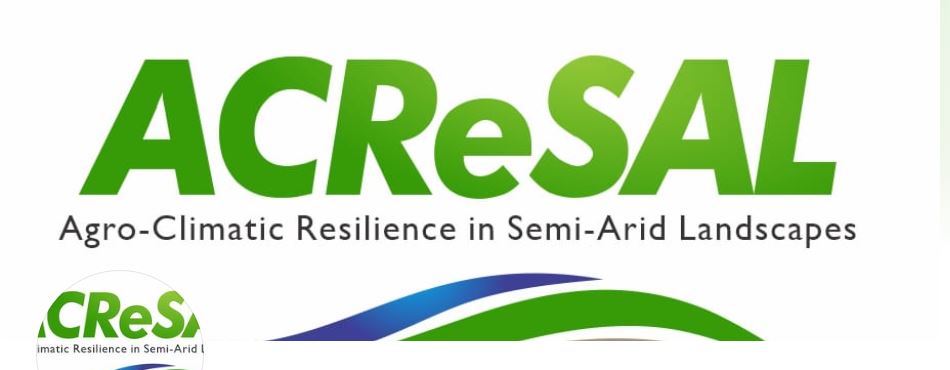The Agro-Climatic Resilience in Semi-Arid Landscapes (ACReSAL) project, a six-year initiative supported by the World Bank, stands as a testament to the Federal Government of Nigeria’s commitment to tackling the intertwined challenges of environmental degradation and climate change in the country’s northern states. This region, characterized by its semi-arid landscape, faces a complex web of interconnected issues, including widespread poverty, limited educational opportunities, fragile ecosystems susceptible to degradation, inadequate institutional capacity, and low agricultural productivity. These pre-existing vulnerabilities are further exacerbated by the escalating impacts of climate change, particularly desertification and water scarcity, which pose significant threats to livelihoods and long-term sustainability. ACReSAL aims to break this cycle of vulnerability by promoting integrated and sustainable landscape management practices across targeted watersheds.
Recognizing the multifaceted nature of these challenges, ACReSAL adopts a multi-sectoral approach, involving collaboration between the Federal Ministries of Environment, Water Resources, and Agriculture and Rural Development. This collaborative framework allows for a holistic intervention strategy that addresses the interconnectedness of environmental restoration, water management, and sustainable agriculture. By integrating these critical components, the project aims to enhance the overall resilience of the landscape to both current and future climate-related stresses. This integrated approach is crucial for achieving long-term sustainability and improving the well-being of communities across Northern Nigeria.
The primary objectives of ACReSAL are ambitious and far-reaching. At the core of the project lies the aim of combating desertification, a process that progressively degrades fertile land, turning it into barren wasteland. Restoring degraded lands is another key priority, as this is essential for revitalizing ecosystems and creating a more productive and resilient landscape. Protecting vital ecosystems is also a central focus, as these ecosystems play indispensable roles in supporting agriculture and preserving biodiversity. Addressing water scarcity, a critical constraint for agriculture in the region, is another paramount objective. ACReSAL recognizes the importance of ensuring adequate water resources for agricultural activities to improve productivity and enhance food security.
Furthermore, ACReSAL strives to mitigate the negative impacts of climate change on the livelihoods of rural farmers. Climate change poses a significant threat to agricultural practices in the region, and the project aims to equip farmers with the knowledge, skills, and resources to adapt to these challenges. By promoting agro-climatic resilience in the semi-arid landscape, ACReSAL seeks to foster widespread adoption of sustainable land management practices, ultimately contributing to improved food security and enhanced economic opportunities throughout the region. The project’s focus on building resilience not only addresses immediate concerns but also lays the groundwork for long-term sustainability and improved livelihoods.
Stakeholder engagement is a cornerstone of ACReSAL’s approach. Recognizing the importance of local involvement and ownership, the project actively engages with communities, traditional rulers, and key stakeholders in the affected areas. These engagements provide valuable platforms for sharing information, gathering feedback, and fostering a sense of shared responsibility for the project’s success. The participatory nature of the project ensures that interventions are tailored to the specific needs and contexts of each community, maximizing their impact and fostering local ownership of the solutions.
The ACReSAL project’s reach extends across all 19 northern states of Nigeria and the Federal Capital Territory (FCT). This broad geographical coverage underscores the commitment to addressing the challenges faced by communities across the entire region. The project’s implementation is guided by a robust monitoring and evaluation framework, which ensures that progress is tracked effectively and that the project remains aligned with its objectives. Regular stakeholder meetings and consultations provide opportunities to assess the project’s impact, identify areas for improvement, and adapt strategies as needed. This continuous monitoring and evaluation process ensures that the project remains responsive to the evolving needs of the communities it serves and maximizes its effectiveness in achieving its goals.


